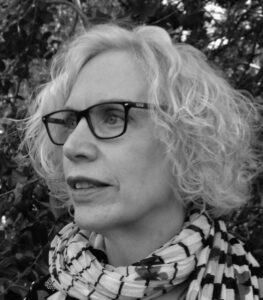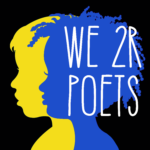
Writers know how much of themselves are melded into the characters they create — much here, only a little there. Maggie, whose distinctive voice drives Backwater, owes a lot to another solitary girl rambling the woods, simultaneously lost and found between the wonders of the natural world and the books she carried everywhere.
I grew up in New York State, near the headwaters of the Allegheny River. My parents owned fields and woods that I knew well before I learned to read. I fished with my dad, and wandered a patch of old-growth forest. Books sustained me — Twain, Poe, Shakespeare, and Tennyson from the home library, nature guides, and A Girl of the Limberlost with another rural girl exploring on her own. Like Maggie, I brought back my finds and interpreted them, generally to amused interest but sometimes ridicule.
After high school and a few erratic years where I took jobs in factories and donut shops while in community college, I slid south along the Allegheny’s path to find myself at the other end of that river system, attending West Virginia University on the banks of the Monongahela. Propelled by the desire to write, I’d determined to become a journalist, but as a blue-collar kid I lacked mentors to help me along the path to college and beyond.
For nearly 20 years, I worked as a reporter and editor for daily newspapers in the northern coalfields of West Virginia, covering everything from train wrecks to murders to acid spills in the rivers, along with government beats and the “hook and bullet” column that let me hang with scientists at the Department of Natural Resources. During that time, I homesteaded a hill farm with my then-husband, building a house and barn, planting an orchard and organic garden — and, of course, wandering with my dog and gathering wild foods and always writing.
My first poetry chapbook and my first novel, both deeply engaged with the natural world, came out in 1988. Neena Gathering, a post-apocalyptic tale based on the landscape around that farm, was long out of print before being brought back as a classic in the genre. Like Backwater, it features a teenage narrator, though at its debut, Young Adult was not a marketing segment and it was listed with general SF paperbacks. I still love that book, and it has many fans who applauded its reissue.
Things change. The marriage ended, and I found myself with a small farm I couldn’t manage and the editorship of a newspaper destined for sale. I headed to the Piedmont of North Carolina for a job with the News & Record, living outside of Appalachia for the first time in my life.
The move brought new adventures, from getting my MFA at Queens University of Charlotte, to the publication of poetry and fiction, to learning how to sail. I would dock a 25-foot Hunter at Lake Kerr — direct inspiration for Maggie’s world of the marina and the landscape of the farms and piney woods of the coastal plain.
I had the pleasure of working with Kevin Watson at Press 53 for all three of my full-length poetry collections. The most recent, Leopard Lady: A Life in Verse, is the story of Dinah and the Professor, whose voices came to me in thunderclap bursts. Life in a carnival takes them on journeys through the South and their own spiritual awakenings. Press 53 also published my novel Blood Clay, set in North Carolina.
Another marriage came and went, and I found myself freed to wander more widely. Solo hiking was pure pleasure, even when I was quite lost on the trails near Les Eyzies-de-Tayac, or slogging through the rain along the Great Glen Way in Scotland, or following the music in Donegal and Dingle. Trailheads beckon me, from the Mountains to the Sea trail in North Carolina to the coastal vistas of San Francisco Bay.
I was delighted when West Virginia University Press, which had also released my short fiction collection, decided to publish To the Bones, a horror/mystery set in the coalfields I well remembered. Appearing in 2019, it was acclaimed as “a parable of capitalism and environmental degradation.” I’m currently writing a sequel.
Along the way, I’ve published poetry widely, in The Georgia Review, The Missouri Review, Chautauqua, and journals across the U.S. as well as Ireland and Greece. Work has also appeared in some fine anthologies, including Eyes Glowing at the Edge of the Woods and Ghost Fishing: An Eco-Justice Poetry Anthology.
I have been a creative writing fellow for North Carolina and West Virginia, the Kentucky Foundation for Women, and the National Endowment for the Arts. I’m finishing up my career as a full professor at NC A&T, and continue to teach at venues such as the John C. Campbell Folk School, Wildacres Writers Workshop, and North Carolina Writers Network.
Oh, and I’m learning to fly fish. New adventures, always.
